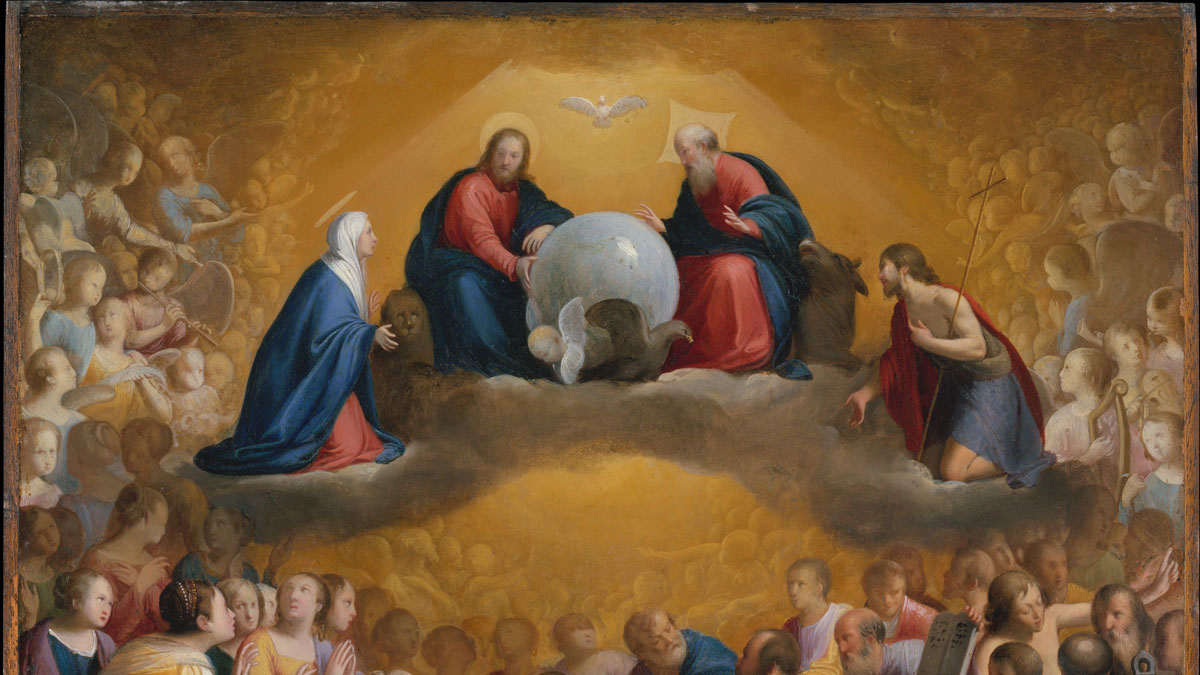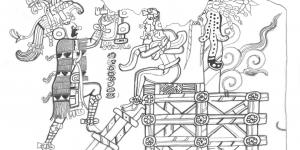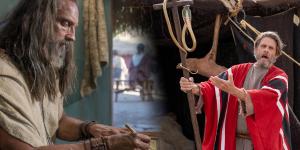You are here
Why Did Nephi Want to Know the Mysteries of God?

1 Nephi 2:16
The Know
When Lehi preached to the people of Jerusalem, most people, including members of his own family, rejected his message. However, his son Nephi wanted to know if what his father said was true. So he asked God, and received an answer, such that he “did believe all the words which had been spoken” by his prophetic father (1 Nephi 2:16). In describing this experience, Nephi said he wanted “to know of the mysteries of God” (v. 16). But what did he mean by this? When the word mysteries is understood in its ancient context, it seems likely that Nephi specifically wanted to know the information his father had learned from the Lord in 1 Nephi 1.1
In 1 Nephi 1:8, Lehi stated that he “thought he saw God sitting upon his throne, surrounded with numberless concourses of angels” (1 Nephi 1:8).2 According to John W. Welch, it was understood in Lehi’s time that a vision like this meant that the prophet was being allowed into the divine council, where he would receive his call and learn what he needed to say to the people.3 One can see this in 1 Kings 22:19–23 and Jeremiah 23:18, as well as in many other texts from the ancient Near East, where God presides over His divine council.4 This council’s main purpose was to deliver God’s decrees, decrees that were issued to prophets who would, in turn, deliver them to the people.5
Thus, as Welch has noted, these prophets were admitted into the council through a vision, allowed to witness the deliberations of the council, and then sent to declare to the people the decision of the council.6 The divine council and its decrees are referred to in Hebrew as the sod.7 Because the sod was not available to everyone, the decrees of the sod were thought to be confidential, similar to what one might reveal to a close friend.8 Because of this, the sod was understood as the mysteries of God. The word sod was even translated into Greek as the word mysterion.9
Welch explained that Nephi’s desire to “know of the mysteries of God” was mentioned soon after Lehi had his experience in the divine council.10 This suggests that Nephi wanted to know the things that had been decreed in that council: the mysteries of God.11 Thus, when the Lord visited him and helped him to believe all the words of his father, He was likely telling Nephi what had been discussed in the council.12 Because what had been discussed in the council matched Lehi’s own words, Nephi then knew that his father was a true prophet, or that he had accurately reported to the people the mysteries decreed in the council.13
The Why
When some people think of the “mysteries of God” they may think about doctrinal riddles or secret codes. However, as John W. Welch put it, even though the decisions of the sod were “confidential and privileged information (and that in this sense they can be called mysteria), they were not puzzles or cryptic information.”14 God revealed His mysteries to Lehi in the divine council with the understanding that Lehi would share that information with the world. Thus, even though the original words of the council are hidden, one function of prophets is to take these mysteries, learned from God, and share them with the people.
Although in some cases God wishes us to keep certain things confidential, in this particular instance it is clear that God wants His prophets to share these mysteries with society, not keep them to themselves. And because the prophets have been commanded to share these truths, the best way to learn the mysteries of God is to listen to the prophets, who have the solemn responsibility to share these truths with everyone.
In addition, this understanding of the mysteries of God should keep us from wandering down strange spiritual paths in search of mysteries. As Welch stated, “while all are invited to seek and all are promised knowledge (1 Nephi 15:8; Matthew 7:7; Moroni 10:4–5), this is not an open invitation for all men and women to seek ‘mysteries’ beyond the declarative words of the prophets.”15 Rather, we should listen to the words of the prophets who tell us what God had told them, which seems to have been Nephi’s understanding of the “mysteries of God.”
Thankfully, Nephi shows us how we can understand the mysteries of God once the prophets have delivered them to us. Just as Nephi prayed about his father’s words and received confirmation and clarification concerning their truthfulness. Welch has noted that, “in a comparable way, the Lord will make known to all his children the truthfulness of the words of his messengers, the prophets.”16
Further Reading
John W. Welch, “The Calling of Lehi as a Prophet in the World of Jerusalem,” in Glimpses of Lehi’s Jerusalem, ed. John W. Welch, David Rolph Seely, and Jo Ann H. Seely (Provo: FARMS, 2004), 421–448.
John W. Welch, “Lehi's Council Vision and the Mysteries of God,” in Reexploring the Book of Mormon: A Decade of New Research, ed. John W. Welch (Salt Lake City and Provo, UT: Deseret Book and FARMS, 1992), 24–25.
John W. Welch, “The Calling of a Prophet,” in First Nephi, The Doctrinal Foundation, ed. Monte S. Nyman and Charles D. Tate Jr., Book of Mormon Symposium Series, Volume 2 (Provo, UT: Religious Studies Center, Brigham Young University, 1988), 35–54.
- 1. For a brief summary of this, see John W. Welch, “Lehi's Council Vision and the Mysteries of God,” in Reexploring the Book of Mormon: A Decade of New Research, ed. John W. Welch (Salt Lake City and Provo, UT: Deseret Book and FARMS, 1992), 24–25.
- 2. For more information on this event, see Book of Mormon Central, “How Did God Call His Prophets in Ancient Times? (1 Nephi 15:8),” KnoWhy 17 (January 22, 2016).
- 3. John W. Welch, “The Calling of Lehi as a Prophet in the World of Jerusalem,” in Glimpses of Lehi’s Jerusalem, ed. John W. Welch, David Rolph Seely, and Jo Ann H. Seely (Provo, UT: FARMS, 2004), 427.
- 4. Welch, “The Calling of Lehi as a Prophet,” 427–429.
- 5. Welch, “The Calling of Lehi as a Prophet,” 427.
- 6. Welch, “The Calling of Lehi as a Prophet,” 428.
- 7. Welch, “The Calling of Lehi as a Prophet,” 428.
- 8. Welch, “The Calling of Lehi as a Prophet,” 435.
- 9. Welch, “The Calling of Lehi as a Prophet,” 435, 428. For an example, see the Sinaiticus Septuagint manuscript suppletor of Sirach 3:19.
- 10. Welch, “The Calling of Lehi as a Prophet,” 436.
- 11. Welch, “The Calling of Lehi as a Prophet,” 435.
- 12. Welch, “The Calling of Lehi as a Prophet,” 436.
- 13. For more on this, see John W. Welch, “The Calling of a Prophet,” in First Nephi, The Doctrinal Foundation, Book of Mormon Symposium Series, Volume 2, ed. Monte S. Nyman and Charles D. Tate Jr. (Provo, UT: Religious Studies Center, Brigham Young University, 1988), 35–54.
- 14. Welch, “The Calling of Lehi as a Prophet,” 436.
- 15. Welch, “The Calling of Lehi as a Prophet,” 435.
- 16. Welch, “The Calling of Lehi as a Prophet,” 435.
KnoWhy Citation
Related KnoWhys
Subscribe
Get the latest updates on Book of Mormon topics and research for free





